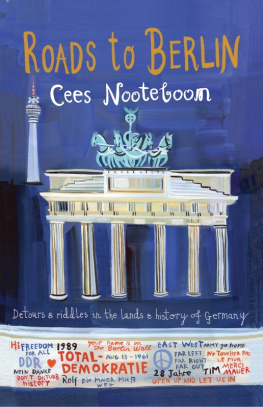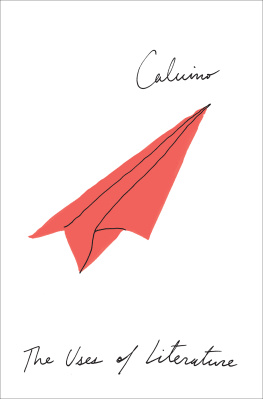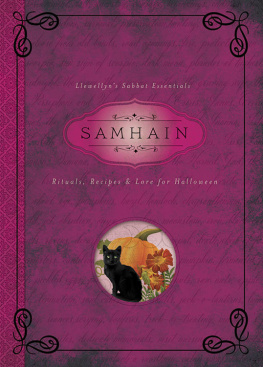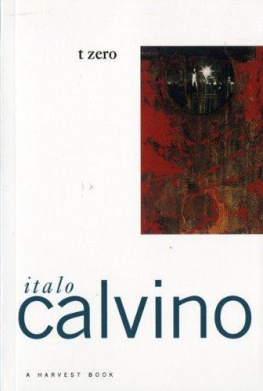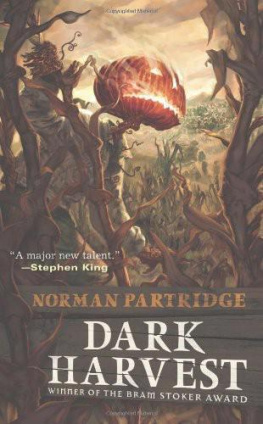Cees Nooteboom - Rituals (Harvest Book)
Here you can read online Cees Nooteboom - Rituals (Harvest Book) full text of the book (entire story) in english for free. Download pdf and epub, get meaning, cover and reviews about this ebook. year: 1996, publisher: Mariner Books, genre: Detective and thriller. Description of the work, (preface) as well as reviews are available. Best literature library LitArk.com created for fans of good reading and offers a wide selection of genres:
Romance novel
Science fiction
Adventure
Detective
Science
History
Home and family
Prose
Art
Politics
Computer
Non-fiction
Religion
Business
Children
Humor
Choose a favorite category and find really read worthwhile books. Enjoy immersion in the world of imagination, feel the emotions of the characters or learn something new for yourself, make an fascinating discovery.

- Book:Rituals (Harvest Book)
- Author:
- Publisher:Mariner Books
- Genre:
- Year:1996
- Rating:4 / 5
- Favourites:Add to favourites
- Your mark:
- 80
- 1
- 2
- 3
- 4
- 5
Rituals (Harvest Book): summary, description and annotation
We offer to read an annotation, description, summary or preface (depends on what the author of the book "Rituals (Harvest Book)" wrote himself). If you haven't found the necessary information about the book — write in the comments, we will try to find it.
Rituals (Harvest Book) — read online for free the complete book (whole text) full work
Below is the text of the book, divided by pages. System saving the place of the last page read, allows you to conveniently read the book "Rituals (Harvest Book)" online for free, without having to search again every time where you left off. Put a bookmark, and you can go to the page where you finished reading at any time.
Font size:
Interval:
Bookmark:
Cees Nooteboom
RITUALS
Translated by Adrienne Dixon
First published in the Netherlands by Uitgeverij De Arbeiderspers, 1980
First published in English by Louisiana State University Press, 1983
First published in Great Britain in 1996 by The Harvill Press
Copyright Cees Nooteboom, 1984 English translation copyright Louisiana State University Press, 1983
CONTENTS
Personne n'est, au fond, plus tolrant que moi. Je vois des raisons pour soutenir toutes les opinions; ce n'est pas que les miennes ne soient fort tranches, mais je conois comment un homme qui a vcu dans des circonstances contraires aux miennes a aussi des ides contraires
No one, basically, is more tolerant than I am. I can see the justification for every opinion; it is not as if I don't have a mind of my own, but I can see that a man who has lived in circumstances quite different to my own will have quite different ideas to mine
STENDHAL "Brouillon d'article "
I - INTERMEZZO 1963
Und allen Plnen gegenber begleitet mich die Frage:
"Was soll der Unsinn?" eine Frage, die berhaupt ganz
und gar von mir Besitz zu nehmen droht
And whenever I make plans I'm dogged by the question,
"what's the point of all this nonsense?" a question
that threatens to take complete possession of me
THEODOR FONTANE
INTERMEZZO 1963
O N THE DAY that Inni Wintrop committed suicide, Philips shares stood at 149.60. The Amsterdam Bank closing rate was 375, and Shipping Union had slipped to 141.50. Memory is like a dog that lies down where it pleases. And that was what he remembered, if he remembered anything: the market reports and that the moon shone on the canal and that he had hanged himself in the bathroom because he had predicted, in his own horoscope in Het Parool, that his wife would run off with another man and that he, a Leo, would then commit suicide. It was a perfect prediction. Zita ran off with an Italian, and Inni committed suicide. He had read a poem by Bloem, too, but he could not remember which one. The dog, arrogant beast, let him down on this point.
Six years previously, on the eve of his marriage, he had wept, on the steps of the Palace of Justice on the same Prinsengracht, exactly such genuine tears as Zita had shed when he deflowered her in a room full of frogs and reptiles in the Valeriusstraat. And for the same reason. Dark premonitions, and an unfathomable dread of changing something, anything, in his life, if only by a mere sign or ceremony.
He loved Zita very much. In secret, only to himself, he called her the Princess of Namibia. She did have green eyes, after all, and gleaming red hair and that dull pinkish-white complexion that goes with it all features of the highest Namibian nobility and she had that air of silent, reserved wonder that is regarded, in all the provinces of Namibia, as the true hallmark of the aristocracy.
Perhaps Zita loved Inni even more. It was only because Inni did not love himself that everything had gone wrong. There were, of course, people who claimed that it was because they both had such ridiculous names, but both Inni (Inigo, after the famous English architect) and Zita (the mother of the Namibian Princess was a supporter of the House of Habsburg) knew that the strange sounds making up their names lifted them above, and isolated them from, the rest of the world. They could spend hours in bed saying Inni Inni, Zita Zita, and on special occasions also velvety variants - Zinnies, Itas, Inizitas, Zinnininitas, Itizitas couplings of names and bodies that at such moments they would have wished to continue forever. But as no greater enmity exists than that between time in its entirety and each random, separate particle of time, there was no chance of that.
Inni Wintrop, fairly bald now but at that time blessed with springy, gold-coloured hair that was long for those days, distinguished himself from many of his contemporaries by having difficulty in spending the night alone, by possessing a bit of money, and by sometimes having visions. For the rest he dealt in painting on occasion, wrote a horoscope for Het Parool, knew a great many poems by heart, and closely followed the stock and commodity markets. Political convictions, of whatever colour, he regarded as more or less mild forms of mental illness, and he had reserved the role of dilettante, in the Italian sense of the word, for himself.
All this, seen as so many contradictions by those around him, was experienced in Amsterdam with increasing pain as the Sixties began to unfold. "Inni lives in two worlds", said his friends, of all kinds and conditions, who themselves lived each in only one world. But Inni, who was ready to hate himself at any moment of the day, on request if need be, made an exception at this point. If he had ever had any ambition, he would have been prepared to call himself a failure, but he had none. He regarded life as a rather odd club of which he had accidentally become a member and from which one could be expelled without reasons having to be supplied. He had already decided to leave the club if the meetings should become all too boring.
* *
But how boring is boring? Often it seemed that the moment had arrived. Inni would lie on the floor for days, his head pressed into the tormenting ribs of the Chinese rush mat, so that Fontana-like patterns appeared in his fairly soft skin. Wallowing, Zita called it, but she realized that it was genuine sorrow rising from deep and invisible springs, and on such sombre days she looked after Inni as best she could. Usually the wallowing ended with a vision. Inni would then rise from the torments of the mat, beckon to Zita, and describe the apparitions he had just seen and what these had said to him.
Years had passed since the night in which Inni had wept on the steps of the Palace of Justice. Zita and Inni had eaten, drunk, and travelled. Inni had lost money dealing in nickel, made a profit in watercolours of the Hague school, and written horoscopes and recipes for Elegance. Zita had almost had a child, but on that occasion Inni had been unable to keep his fear of change under control and had given orders to prevent its entrance into a world for which, after all, he himself did not care much either. In so doing, he had put his signature under the biggest change of all, that Zita would leave him. Inni noticed only the first foreshadowings: her skin became drier, her eyes did not always look at him, she uttered his name less often. But he associated these signs only with her fate, not his.
It is a peculiarity of time that in retrospect it appears so compact, an indivisible solid object, a dish with only one smell and one flavour. Inni, familiar with the idiom of modern poetry, was fond of describing himself in those days as "a hole", an absence, a nonexistent. Unlike the poets, he did not mean anything specific by this. It was more a social comment on the fact that he was able to mix with the most diverse kinds of people. A hole, a chameleon, a being that could be given content, complete with attitude and accent it was all the same to him, and Amsterdam offered every opportunity for mimicry. "You don't live," his friend the writer had once said to him, "you allow yourself to be distracted," and Inni had regarded this as a compliment. He thought he played his part equally well in a working-class bar and at a shareholders' meeting. Only his hairstyle and clothes posed a problem on occasion, but in the days when all Amsterdam became chameleon like, when modes of dress proclaimed the anticipated classless society and it no longer mattered who wore what and when, Inni enjoyed the happiest time of his life, insofar as in his life there could be question of that.
Not so Zita. Even the limitless reserves of Namibia will become exhausted. There are women who are so faithful that nothing but a once-only unfaithfulness can save them from certain catastrophe. Inni might perhaps have been able to recognize this, but somewhere in the indivisible lump of never-to-be-recaptured time he had ceased to pay attention to Zita. What was worse, he made love to her more and more often, heedless of all the omens, so that Zita gradually withdrew her love from this ever stranger man who, while exciting, caressing, and licking her, while bringing her off, would fail to notice her for days on end. Inni and Zita thus became two perfect lust machines, attractive to the eye, ornaments to the city, dream apparitions at the parties of Haffy Keizer and Dick Holthaus. When she was alone, Zita would sometimes linger by a window display of baby clothes. She would shudder with hidden revenge, usually at moments only the great platonic computer that registers everything could observe this while somewhere in a squalid room in some European capital Inni was having himself rubbed up by a whore or a teenager in jeans, or was making a killing at some gaming table by calling out banco six times in succession. To the cautiously advancing Mediterranean man who was attracted by the rapacious look on the white face in its frame of red hair reflected in the window of the baby store, Zita paid no attention. Her time had not yet come.
Next pageFont size:
Interval:
Bookmark:
Similar books «Rituals (Harvest Book)»
Look at similar books to Rituals (Harvest Book). We have selected literature similar in name and meaning in the hope of providing readers with more options to find new, interesting, not yet read works.
Discussion, reviews of the book Rituals (Harvest Book) and just readers' own opinions. Leave your comments, write what you think about the work, its meaning or the main characters. Specify what exactly you liked and what you didn't like, and why you think so.


